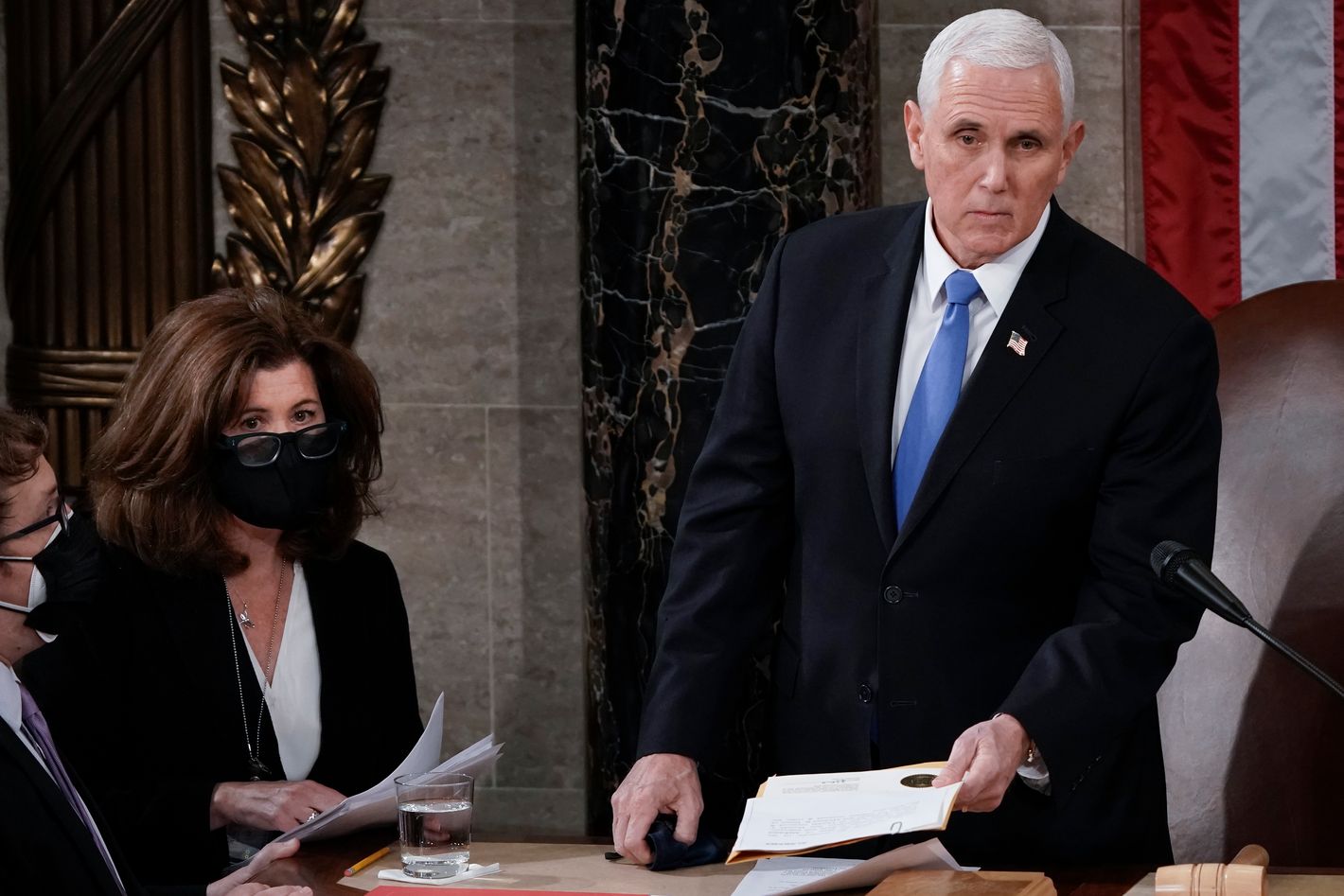Photo: J. Scott Applewhite/AP Photos
This is a pretty big week in American politics. On Tuesday we’ll see the first special and off-year elections of the second Trump era, and on Wednesday Trump will impose a wide array of new tariffs (an event he calls Liberation Day). But a little-known decision could soon dwarf those important developments in long-term significance. Senate Parliamentarian Elizabeth MacDonough is set to decide whether Congress can treat $4.6 trillion in proposed tax cuts as “free” from the point of view of the budget process. That’s because she is the official referee of what passes muster for inclusion in a Senate budget-reconciliation bill, which cannot be filibustered. Indeed, there is an arcane procedure called a “Byrd bath” (in honor of the late senator Robert Byrd, one of the chief architects of the budget process) through which MacDonough is empowered to rule particular proposed budget provisions in or out.
As it happens, Senate Republicans very much want to pull a fast one in how the budget bill is put together this year, as NBC News reported:
Extending the Tax Cuts and Jobs Act, which Trump signed into law in 2017, would cost $4.6 trillion over a decade, according to the Congressional Budget Office, the official nonpartisan scorekeeper.
That’s under the “current law” metric that has traditionally been used, as the tax cuts are slated to expire at the end of this year. But Senate Republicans want to use a different scoring method called the “current policy” baseline, which would assume that extending tax cuts costs $0 because they’re already law …
If the tactic is successful, it would upend long-standing precedent and change the accounting process for current and future lawmakers, with major policy stakes.
The “tactic,” as NBC calls it, is pretty fundamentally a lie. These tax cuts were initially made affordable under budget rules by utilization of an expiration date. Suddenly wishing away expiration dates makes revenue losses not earlier contemplated magically “free” of any impact on budget deficits. As the Committee for a Responsible Federal Budget explains, this approach creates a sort of perpetual-motion machine where costs are defined out of existence:
A common excuse for using a current policy baseline — which assumes that all temporary policies are actually permanent — is that it better reflects the “reality” of what will happen. However, this argument is nihilistic, ahistorical, and inaccurate.
Assuming anything that is likely to happen will happen effectively assumes Congress has little autonomy or decision-making power and establishes a type of circular logic where any policy that lawmakers want to enact is assumed to be costless because it already reflects “reality.”
Nihilistic or not, a whole lot depends on whether MacDonough goes along with the “current policy” scam — not just the tax cuts themselves but the vast and painful budget cuts that Republicans will surely impose to offset them. $4.6 trillion in cuts would almost guarantee big reductions in Medicaid and possible Medicare spending along with massive reductions in the discretionary spending that keeps the federal government functioning, even at the reduced levels being contemplated by Elon Musk’s DOGE. Such a course of action would very much expose the GOP to Democratic claims that its goal is to cut federal programs and services on which lower- and middle-class Americans rely in order to reward Trump’s billionaire buddies and their businesses with tax cuts.
If, on the other hand, MacDonough does play ball with brand-new rules, it may make Senate Republicans momentarily happy, but it’s unclear the fiscal hawks of the House Freedom Caucus will be willing to go along. And in the longer run, financial markets will see through the gambit, and eventually the Federal Reserve could impose monetary policies designed to offset the real deficit in ways that Trump and congressional Republicans could find very unpleasant.
Theoretically, the Senate could overrule MacDonough or even fire her, though she is a respected nonpartisan figure who has worked under both Republican and Democratic majorities dating back to 2012. Ultimately, the same real-world arbiters of deficits and debt that may disregard “current policy” scoring would look very dimly on an open GOP revolt against the budget rules and their referee.
So, yes, MacDonough’s decision is likely to be fateful. At stake is nothing less than Donald Trump’s whole legislative agenda.

